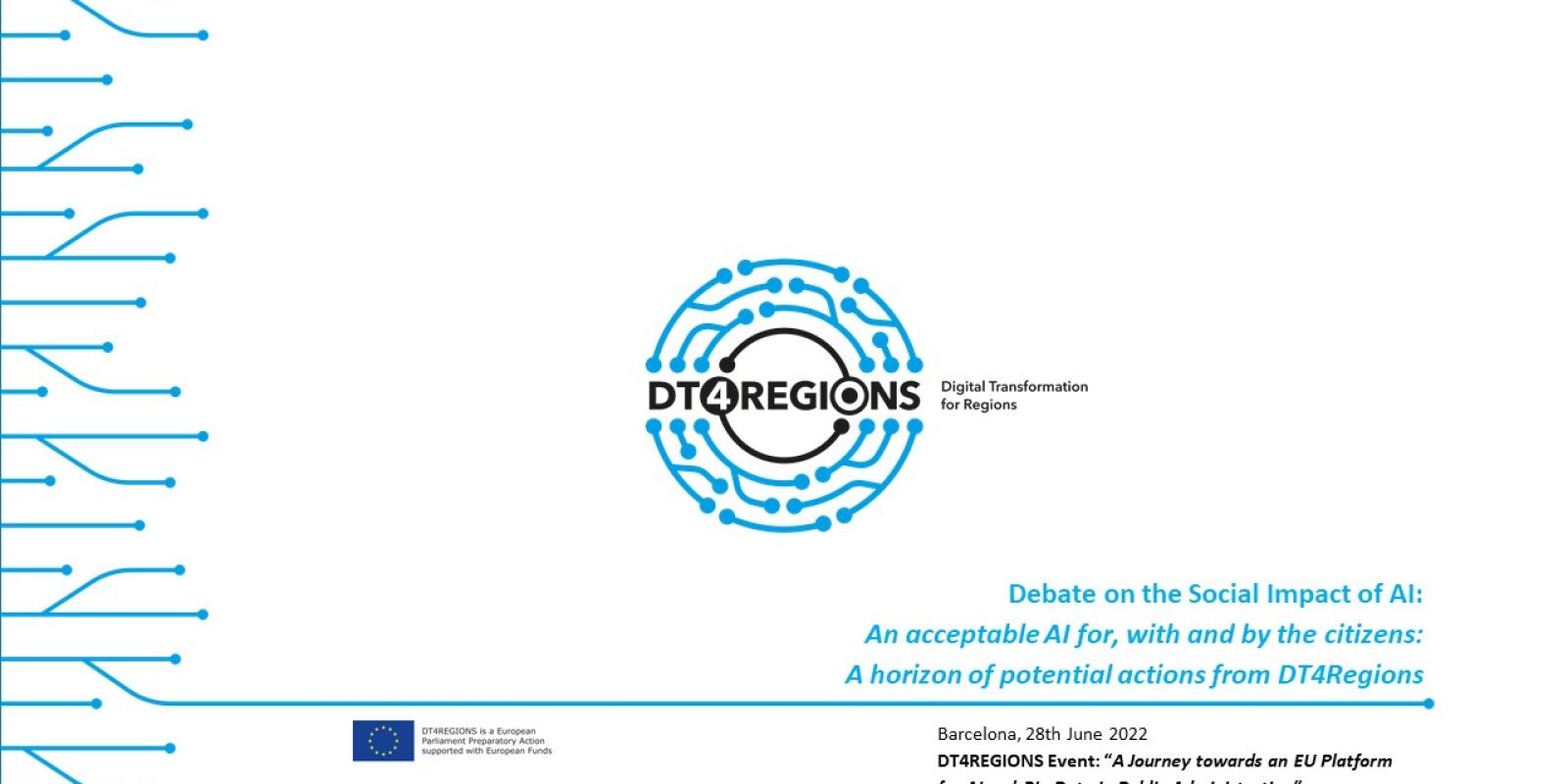Open debate: an acceptable AI for, with and by the citizens


“A Journey towards an EU Platform for AI and Big Data in Public Administration” is the title of the DT4REGIONS mid-term event that took place at Palau Real de Pedralbes in Barcelona, on June 28th and 29th, the event marked the conclusion of the first year of DT4REGIONS and the beginning of its second phase. The gathering provided a valuable opportunity to present, for the first time, the DT4REGIONS Platform in its first release. A call for applications, for a DT4REGIONS Award for the most innovative digital solution, was also presented. Over two days, the event encompassed multiple initiatives, including a high-level conference; an open debate on the social impact of AI; thematic workshops exploring regional use cases, data spaces and digital twins.
The first DT4Regions open debate gathered 75 participants representing municipalities of European cities and regions, as well as policy makers, academia, and industries.
The aim of the Open Debate was to tackle the essential issue of how to deploy an acceptable AI in our cities, communities and regions. More concretely, we addressed this topic from the perspective of how to do it by applying a citizen-centric approach, in which citizens become actors and not factors of the fundamental transformative changes to happen in the years to come. AI-based technologies, among other recent technological advances associated to the Digital Transformation, has generated an enormous attention, with numerous works and debates in the field of ethics, creating tensions in the existing regulatory frameworks, and arising many questions in essential dimensions of our life, such as our identity as individuals, our right for privacy, the potential roles that we can play in a dynamic labour market, and much more. Particularly, this has been associated, though not exclusively, with the unleashed capacity of automation of processes, the increased machine-based decision-making with a focus on the way in which these decisions could be biased and controlled, and the possibility of monitoring, profiling, processing and creating massive data in real time on the Internet. What an acceptable AI is represents a key question that different observatories and institutions are struggling with, but how our citizens and communities are engaged in the co-design, validation and legitimation of these approaches is an open area of work. Through this debate we will try to shed light around this topic by paving the way to a mutual learning community of actors interested in citizen-centric approaches for an acceptable AI, with contributions and examples from the different representatives of the community. The full agenda of the Open Debate is included below.




